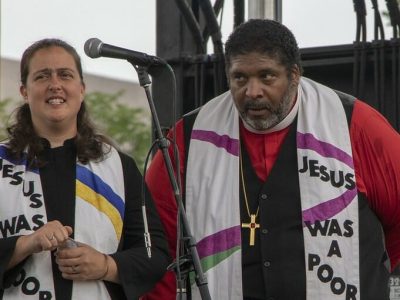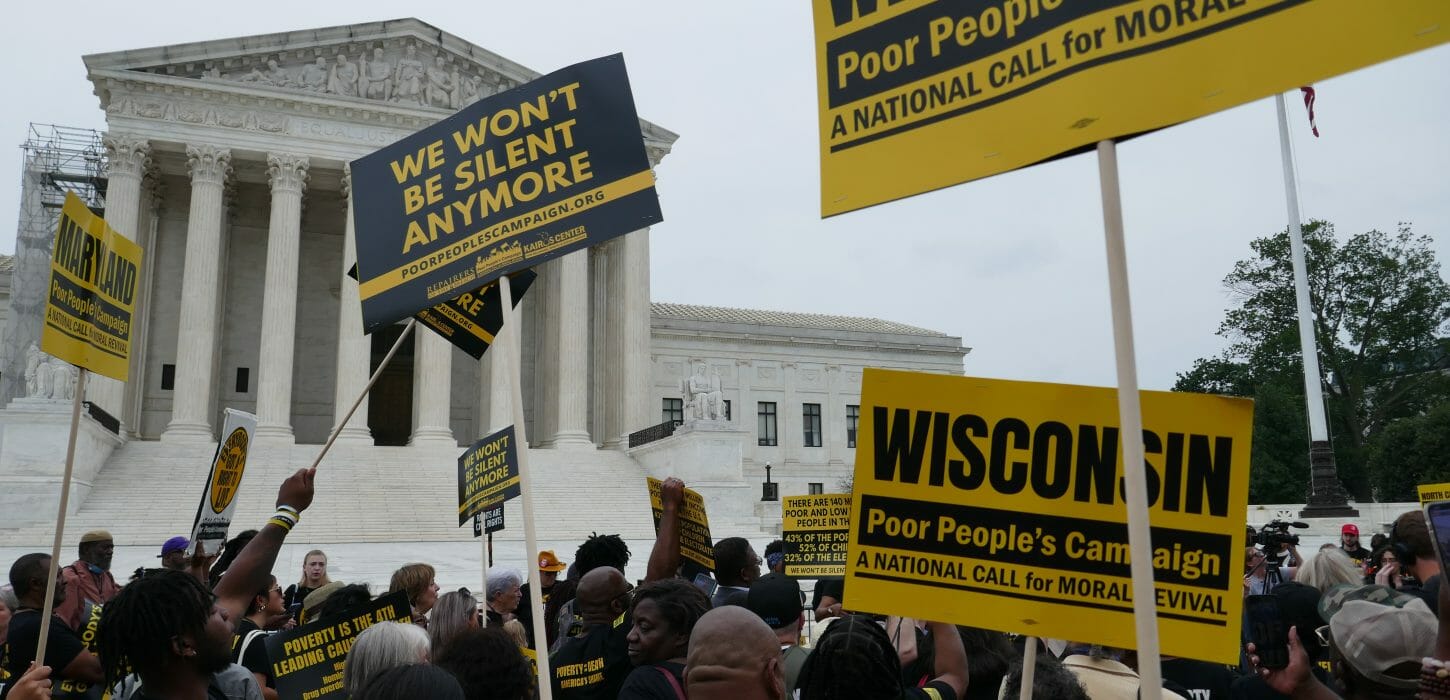ev. Dr. Martin Luther King, Jr. and other civil rights leaders launched a Poor People’s Campaign in 1968 to tackle what he called the “Triplets of Evil” — systemic racism, poverty, and militarism. Fifty years later, activists revived this multi-racial fusion movement to carry on the fight against these injustices, as well as the growing scourge of ecological devastation.
In 2018, this modern-day Poor People’s Campaign joined with the Institute for Policy Studies to audit progress in these areas. Our conclusion? By many indicators, from voting rights to mass incarceration to wealth inequality, these systemic problems had deepened since 1968.
With these disturbing facts in hand, the campaign has united poor and low-income people across the country to demand a new moral agenda based on fundamental rights.
This week, the Poor People’s Campaign and the Institute for Policy Studies are taking stock once again with the release of fact sheets that examine the state of poverty and inequality in the country as a whole, as well as extensive data tailored for each of the 50 states and the District of Columbia.
A Moral Poverty Action Congress
The campaign is distributing the materials at a Moral Poverty Action Congress bringing together organizers from more than 30 states in Washington, D.C., for education and advocacy on Capitol Hill.
So where do things stand today, five years after Bishop William J. Barber II and Rev. Dr. Liz Theoharis launched the modern-day Poor People’s Campaign?
Think about everything that’s happened during this time. A pandemic. The police murder of George Floyd and the explosion of the Black Lives Matter movement. A surge of attacks on voting rights and on the rights of women and LGBTQ+ people. An insurrection at the Capitol. Escalating climate change. And white supremacist efforts to erase our history of systemic racism.
In the face of these and other challenges, the Poor People’s Campaign has built coalitions in more than 40 states that have amplified the voices of impacted communities in the halls of power. They worked with IPS and other allies on a comprehensive guiding vision for the nation that inspired the introduction of a Third Reconstruction Resolution in the U.S. House of Representatives in 2021. They’ve also registered millions of low-income voters, contributing to the highest turnout of low-income voters in history in the 2020 election.
These efforts have contributed to some important steps forward. But in a system where the rules are heavily skewed to favor the rich and big corporations, there have also been steps back.
Key fact sheet highlights
Pandemic relief policies temporarily lifted the load of poverty, proving that poverty in the richest country in the world is a policy choice. But these initiatives ended too soon, resulting in higher rates of economic, food and housing insecurity.
Our most recent data indicate that poor and low-income people make up more than 40 percent of the population in 13 states (California, Mississippi, New Mexico, Florida, Hawaii, New York, Georgia, Alaska, Louisiana, Texas, Nevada, Arkansas, and North Carolina).
With rising inflation, average household debt rose in every state between the last quarters of 2021 and 2022, with a third of all states now having average debt burdens of $50,000 or more.
The lifting of pandemic eviction protections in 2021 put as many as 17 million people at risk of becoming unhoused. As of the beginning of 2023, 7 million households nationwide reported being behind in their rent or mortgage payments. In nearly a third of states, at least 100,000 families were behind on these bills.
The end of pandemic policies that expanded Medicaid access is putting millions of Americans at risk of losing their health care, including over 5 million children, 6.6 million white people, 4.6 million Hispanic/Latino people, 2.2 million Black people, and over 500,000 Asian and Native people.

Bishop William J. Barber II and Rev. Dr. Liz Theoharis, Poor People’s Campaign Co-Chairs, 2018. Credit: Flickr / Susan Melkisethian.
